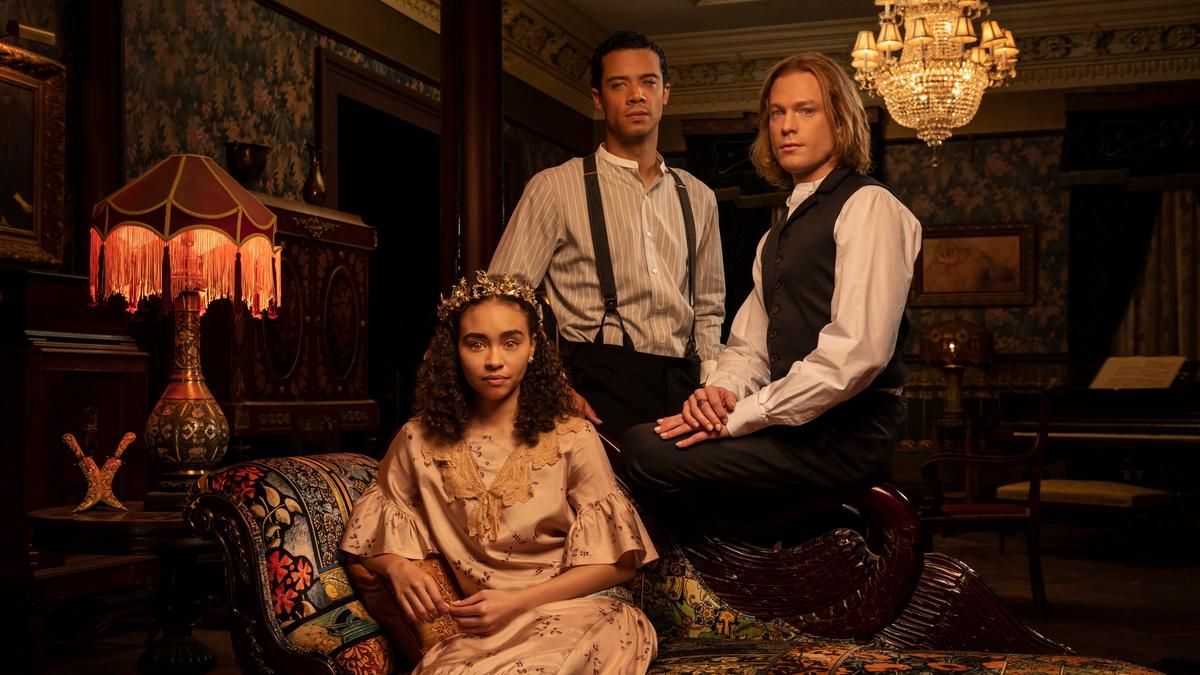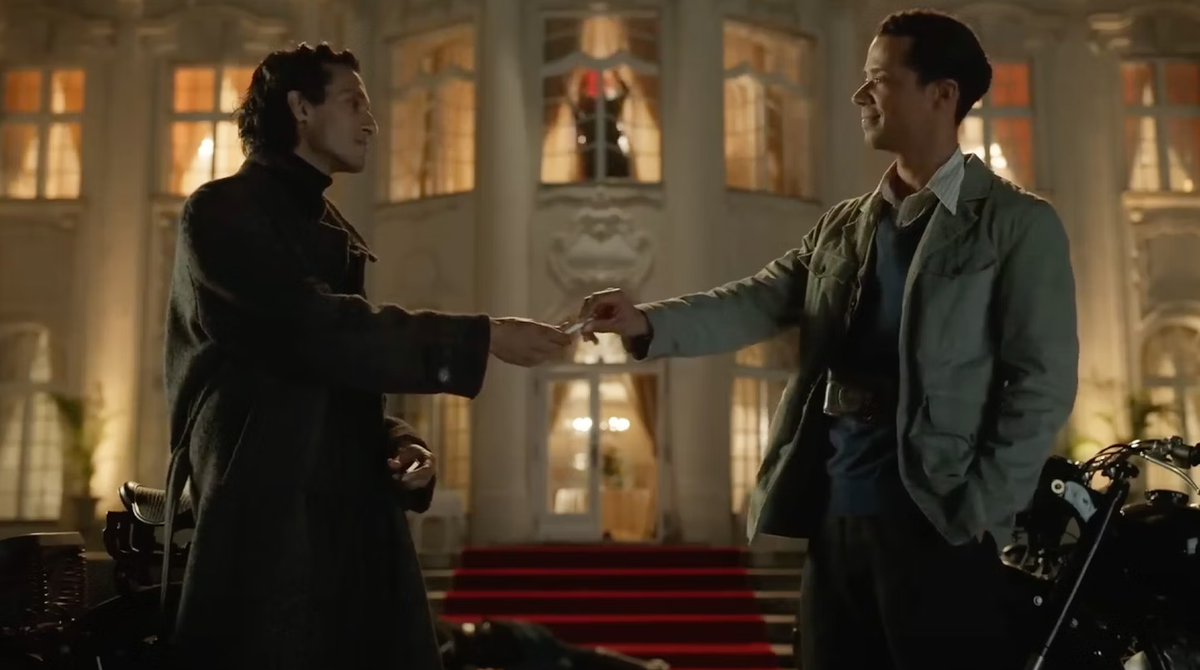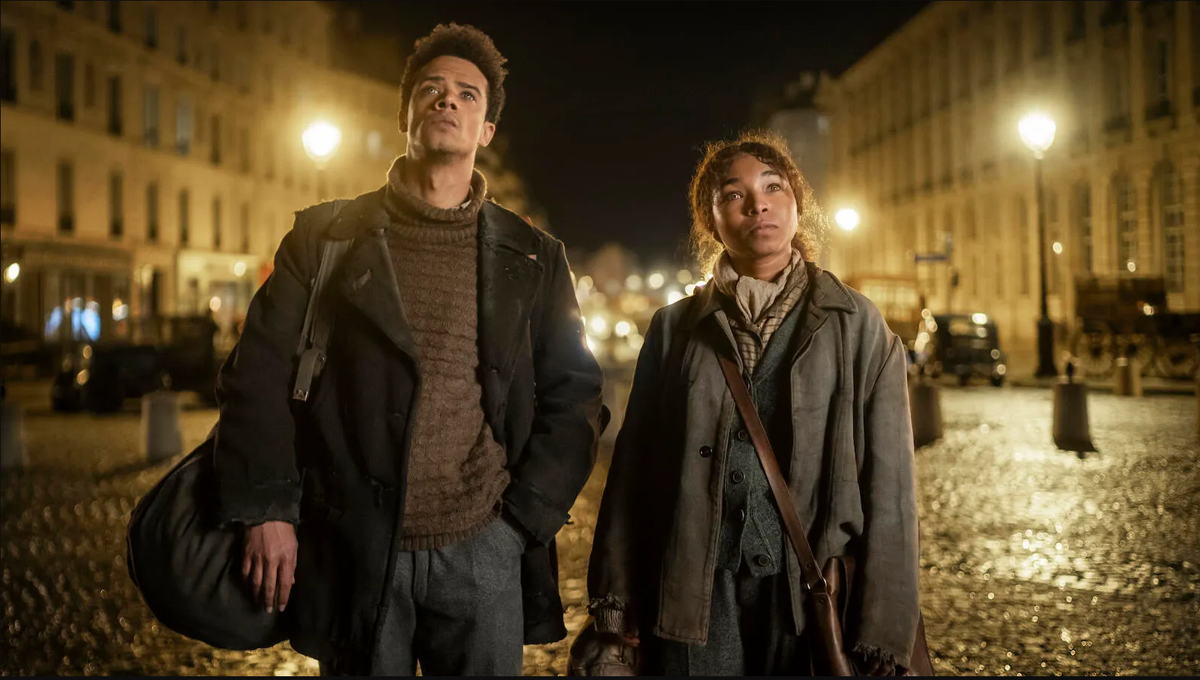- July 4, 2024
‘Interview with the Vampire’ Season 2 review: New blood and new vampire romances keep the audience thirsty for more

Anne Rice’s Interview with the Vampire (IWTV), is a canon text in how the audience’s perception of the blood-thirsty beast has changed over the years. Leaving behind a fearful monster to embrace a seductive spectacle, Rice’s vampires were enthralling, entertaining, but most importantly they were queer (at least in subtext).
AMC’s latest iteration of Rice’s novel, introduced many changes to the novel’s settings and its characters. The show, set in early 20th century New Orleans instead of 18th century Louisiana, follows Louis de Pointe du Lac, a black vampire (switched from the character’s original background as a plantation owner). In its first season, the show incorporated these changes, not as token representations, but as ways to inform the inner lives of its vampire cast. The show’s recently-concluded second season, over eight episodes, delivers a perfect follow-up. With more bite to its script, feisty dalliances in the streets of Paris and San Francisco, and a new vampire theatre troupe, IWTV’s second season is a bloody feast to relish.
Land of Women (Spanish, English)
Creators: Rolin Jones
Cast: Jacob Anderson, Sam Reid, Eric Bogosian, Assad Zaman, Delainey Hayles, Ben Daniels
Episodes: 8
Run-time: 45-50 minutes
Storyline: Vampires Louis and Claudia find a new beginning in Paris, while in the present day inteviewer Daniel Molloy discovers that Louis may not have been telling him the whole truth.
Picking up right where we left of, the second season gives the audience a minute to digest the new development – ‘Rashid’ is actually Armand (Assad Zaman), an ancient vampire and Louis’ (Jacob Anderson) longtime companion. As Armand settles next to Louis in a more publically equal role, journalist Daniel Molloy (Eric Bogosian) continues the interview with fresh scorn after having been lied to about Armand’s identity.

A still from ‘Interview with the Vampire’ Season 2
The follow-up season of IWTV hinges on its familiar characters settling down in new roles. We have a new dynamic between Louis and Armand to decipher, while Daniel takes a trip down the memory lane to San Francisco, when he first came across Louis. Meanwhile, the timeline in the interview, as being narrated by Louis, picks up in Europe with the second World War winding down. A heartbroken Louis, who almost-but-not-quite murdered Lestat, is wandering the European countryside with Claudia (Delainey Hayles) searching for other vampires. Where is Lestat in all this, you ask? In Louis’ head mostly, tormenting him. And despite having flashes of appearance, Sam Reid is as dramatic and captivating as ever.
The actual course of the interview between Louis and Daniel lasts just under two weeks, but spans three vastly different timelines. They recall his time in Paris in the 1940s, where he first meets Armand, and also explore their previous interview session in 1973. All of this takes place within the cold and sterile interiors of Louis’ Dubai apartment in the present, post-COVID time. IWTV’s ambitious move to juggle these three timelines together pays off well. It works almost like those plays that Armand puts up at his Théâtre des Vampires in Paris. A seamless rotation of horror and heartbreak, couched in amusement, that keeps the audience on its toes.

Like Armand and Daniel, Louis is also given a new dimension from which to look at his vampirism. Sans Lestat, who was his initiation into vampirism and queerness, Louis attempts to find a fresh start for himself in Paris. In a new social order, where the colour of his skin might is not the first thing people talk about, Louis feels more inclined to settle down. He takes up Armand and photography with equal ease. Claudia, who is now part of Armand’s coven, also enjoys her newfound family that matches her teenage impulse to ruthlessly hunt.
Delainey Hayles takes the mantle from Bailey Bass (who played Claudia in the first season), and infuses a new kind of anger in Claudia. It’s a different take on being resigned to a life of teenagehood, but suits a Claudia who is now decades into being a vampire. Despite being disappointed in him she still accompanies Louis, whom Jacob Anderson plays with an exquisite control.

A still from ‘Interview with the Vampire’ Season 2
But since vampire bliss cannot last long, Louis’ freedom ruffles the feathers of Armand’s coven, who are stylishly led by Santiago (Ben Daniels). The second-half of the season pulls back the curtains from these extravagant characters, to reveal more humanistic vampires. Yes, they can move at lightning speed, fly in the air, and put their fist through your skull, but vampires are ultimately, like humans: slaves to their most basic emotions – hunger, loneliness, jealousy, anger, and guilt. IWTV achieves this with what it wants its characters to be, and not just what they have been since the books were first published. It is this confident writing, that allows it not only embrace the difficult parts, but also lean fully into the cornball side of things – the coloured contact lenses that harken back to the Brad Pitt, Tom Cruise-led 1994 film.
A constant brush with humanity, the vampires’ air of grandeur washed away by their own lack of control, is what makes IWTV an enrapturing watch. That the script matches the impossible vampire feats, with the more pitiable turn of events, lends it a thrilling quality. Eric Bogosian as Daniel, punctures Louis and Armand’s self-importance with his human cynicism, balancing out the flourishes.

Interview with the Vampire, moves leaps and bounds ahead of what Anne Rice believed a vampire could stand for. And in its pursuit, it comes back almost 360° to reveal them as the humans they are stuck as. Nina Auerbach, in her book Our Vampires, Ourselves, wrote “Every age embraces the vampire it needs.” In an age of IP-driven drivel, the television landscape is lucky to have mined something original from a 1976 novel.
All episodes of Interview with the Vampire are available for streaming on Amazon PrimeVideo




